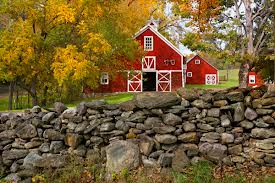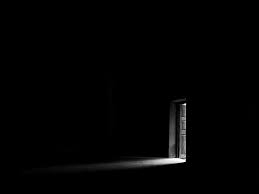We’ve all been there, at one time or another. Everything seems to be going wrong, the world, gray, dark, and bare, as if by some perverse design, conspiring against us and keeping us down.
The main characters in The Eye-Dancers all struggle with this as well, feeling that life, in one way or another, has dealt them a bad hand, that they have too many obstacles to overcome, too many pitfalls littered along their path. Over the course of the novel, however, they must learn to view things differently. Their very survival depends on it.
So does Joey Crown’s. In a first-season Twilight Zone episode titled “A Passage for Trumpet,” Crown, a down-on-his-luck trumpet player, is at the very end of his frayed and thinning rope.
As the story begins, we see Crown in an alley behind a club, listening to the performers inside, wishing he could join them.
“Joey Crown, musician with an odd, intense face,” Rod Serling tells us in a voice-over, “whose life is a quest for impossible things like flowers in concrete or like trying to pluck a note of music out of the air and put it under glass to treasure.”
Indeed, this is a man with a keen sense of beauty, of the delicate, silk-like strands that hold life together, but who has been battered and shaken by circumstance and a string of bad choices.
As he loiters in the alley, the club manager steps outside and sees him. It is clear the men know each other. Crown has played at the club before.
“I brought along my baby,” Crown says, flashing his trumpet. “I thought you might need somebody with a horn.”
“Not tonight,” the manager says. “Last time you played trumpet for me, you loused it up. I had to share you with a bottle.”
Crown assures him he’s sober now, that he’s “forgotten what the stuff tastes like.” But when he picks up his case, he knocks over a hidden bottle of whiskey. It falls to the ground and shatters.
“Why, Joey, why?” the club manager asks. “You had it!” Why has he thrown it all away–the talent, the career–with alcohol? Why did he always have to get drunk?
Looking the manager in the eye, Crown says, “Because I’m sad. Because I’m nothin’. Because I’ll live and die in a crumby one-roomer with dirty walls and cracked pipes . . . I don’t even have a girl. . . . But when I’m drunk–oh, when I’m drunk, boy, I don’t see the dirty walls or the cracked pipes. I don’t know the clock’s goin’, that the hours are goin’ by . . . ’cause then I’m Gabriel. I’m Gabriel with the golden horn. And when I put it to my lips, it comes out jewels. It comes out a symphony. It comes out the smell of fresh flowers in summer. It comes out beauty. Beauty.”
He turns, ready to leave. “When I’m drunk,” he says. “Only when I’m drunk.” He walks off, tosses his case aside in disgust.
“Man, I’m tired of hangin’ around,” he says to nobody in particular.
The next morning, Crown sells his trumpet at a pawnshop. Reluctantly, he accepts the proprietor’s offer of $8.50. Later, he returns, half-drunk, and sees the proprietor placing his trumpet in the window with a price tag of $25. Crown mashes his face against the glass and taps.
“Don’t worry, I ain’t gonna get that price,” the pawnshop owner shouts through the window. “I got an overhead, too, you know. Guys like you, you don’t understand that. What kind of responsibilities someone like you got, huh? Nothin’. Nothin’ at all!”
Crown turns away from the window. “Yeah,” says. “Nothin’. Nothin’ at all. No responsibilities. No nothin‘.”
Without hesitating, Crown steps off the sidewalk, in front of a passing truck. A woman nearby shrieks, Crown falls to the pavement, not moving, not breathing.
The screen fades to black.
Night has fallen, and Crown stirs, gets up. As he soon discovers, though, things are not as they were. He talks to a policeman, who ignores him. He asks a man for a light, but he ignores him. He approaches a woman working at a ticket booth, asks her for a light, and she ignores him, too. It is as if he doesn’t exist.
“Look at me!” he screams at her. But she doesn’t.
Finally, he concludes that he’s dead, his suicide attempt a success. That’s why no one can see or hear him.
He returns to the alley he visited the previous night, behind the club. From somewhere further up the alley, he hears someone playing the trumpet. He seeks out the source, intrigued.
“Don’t stop,” he says, when the trumpet player looks at him. “It’s comin’ out beautiful.”
“Thanks,” the man with the trumpet replies.
Crown is shocked he can hear him, see him, when nobody else has been able to. “You’re a ghost, too, huh?” he says, explaining that he stepped in front of a truck earlier and must be dead.
The man offers Crown his trumpet. “Wanna blow on this awhile, Joey?” he asks.
Again Crown is taken aback. How does this stranger know his name?
The man smiles. “I know who you are. You play a nice trumpet. I know. I’m an expert on trumpets.”
After Crown plays a short tune, the man tells him he isn’t dead. Crown protests. What about all those people who didn’t see or hear him?
The stranger tells Crown it is they who are dead. “They’re the ghosts, Joey, they just don’t know it yet, that’s all. . . . You’re the one that’s alive.” He explains that Crown is in a kind of limbo, “neither here nor there.” He is “in the middle, between the two. The real and the shadow. Which do you prefer, Joey?”
Crown says maybe he just forgot how much there was for him, about the music in his horn and how nice it sounded. “Yeah,” he says. “Somewhere along the line, I just forgot all the good things. That’s what happened, you know. I just forgot.”
The mysterious stranger tells Crown there is still time. He still has a choice . . .
Crown, animated, without a shred of doubt, says if there’s a choice, then, “I wanna go back!”
The man pats Crown on the shoulder. “All right,” he says. “You go back. But, Joey, no more stepping off curves. You take what you get and you live with it. Sometimes it’s sweet frosting, nice gravy. Sometimes it’s sour and goes down hard, but you live with it, Joey. It’s a nice talent you got. To make music. Move people. Make ’em wanna laugh. Make ’em wanna cry. Make ’em tap their feet. Make ’em wanna dance. That’s an exceptional talent, Joey. Don’t waste it.”
He walks away, but Crown shouts after him. “I never got your name!”
“Call me Gabe,” the stranger says. “Short for Gabriel.” He smiles again, disappears into the night.
Suddenly, Crown is returned to that morning, stepping in front of the truck. The same woman screams. Crown falls to the pavement, but he immediately gets up, only grazed. The driver of the truck, worried, jumps out of the vehicle and hands Crown a handful of bills, hoping that will persuade him to keep the doctors and insurance companies out of it. “Be a nice guy, huh, pal?” he says.
Crown immediately puts the money to use, buying his old horn back from the pawnshop.
That night, as Crown plays the trumpet while relaxing on the roof of his apartment building, a young woman approaches. She tells him he plays beautifully, and introduces herself. She is new to the city, just moved in. “I’ve never even been to New York before,” she says.
“It’s not such a bad town,” Crown says. “You’ll like it here.”
The woman smiles, asks him if he might be willing to show her some of the sights.
Crown smiles in wonderment. “Me?” he says. And then, his confidence boosted, his spirits lifted as high as they’ve been in ages, he excitedly tells her all the places they can visit.
**************
When we are adrift, lost at sea, a thousand miles from the nearest coastline, even then, there is still a song to be sung, lyrics to compose, and a life to live.
Perhaps Rod Serling says it best, in the episode’s closing narration . . .
“Joey Crown, who makes music, and who discovered something about life; that it can be rich and rewarding and full of beauty, just like the music he played, if a person would only pause to look and to listen . . .”
Thanks so much for reading!
–Mike














































































